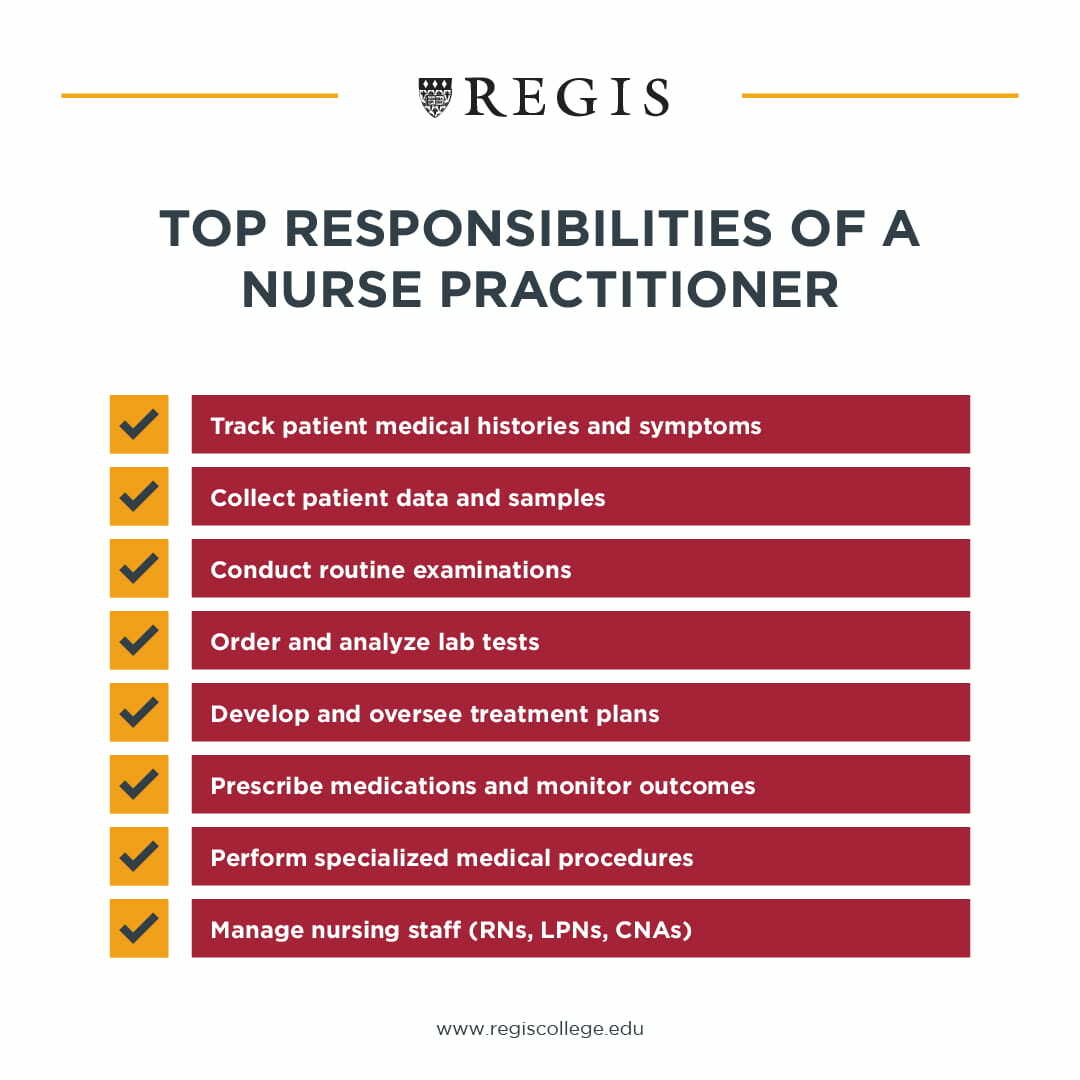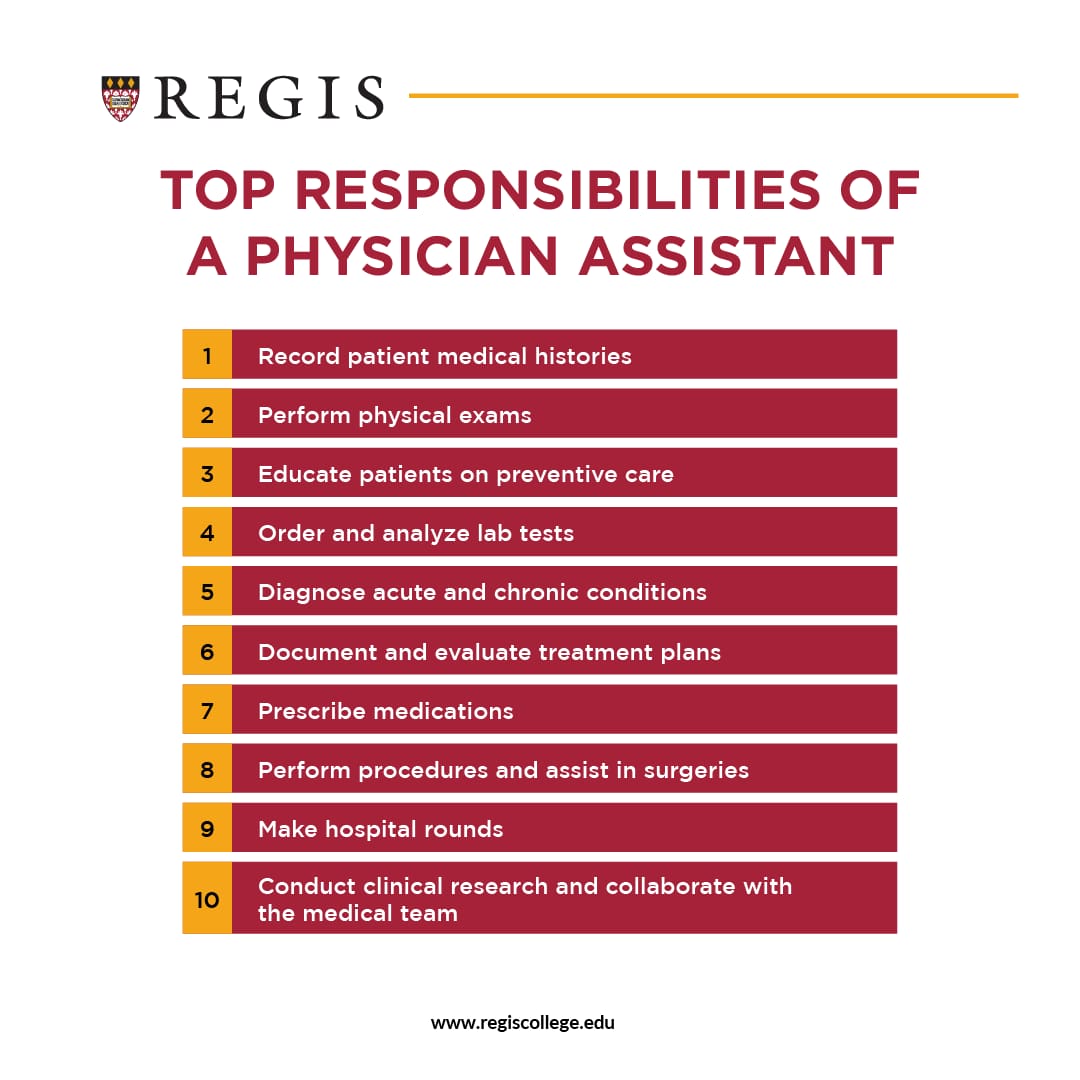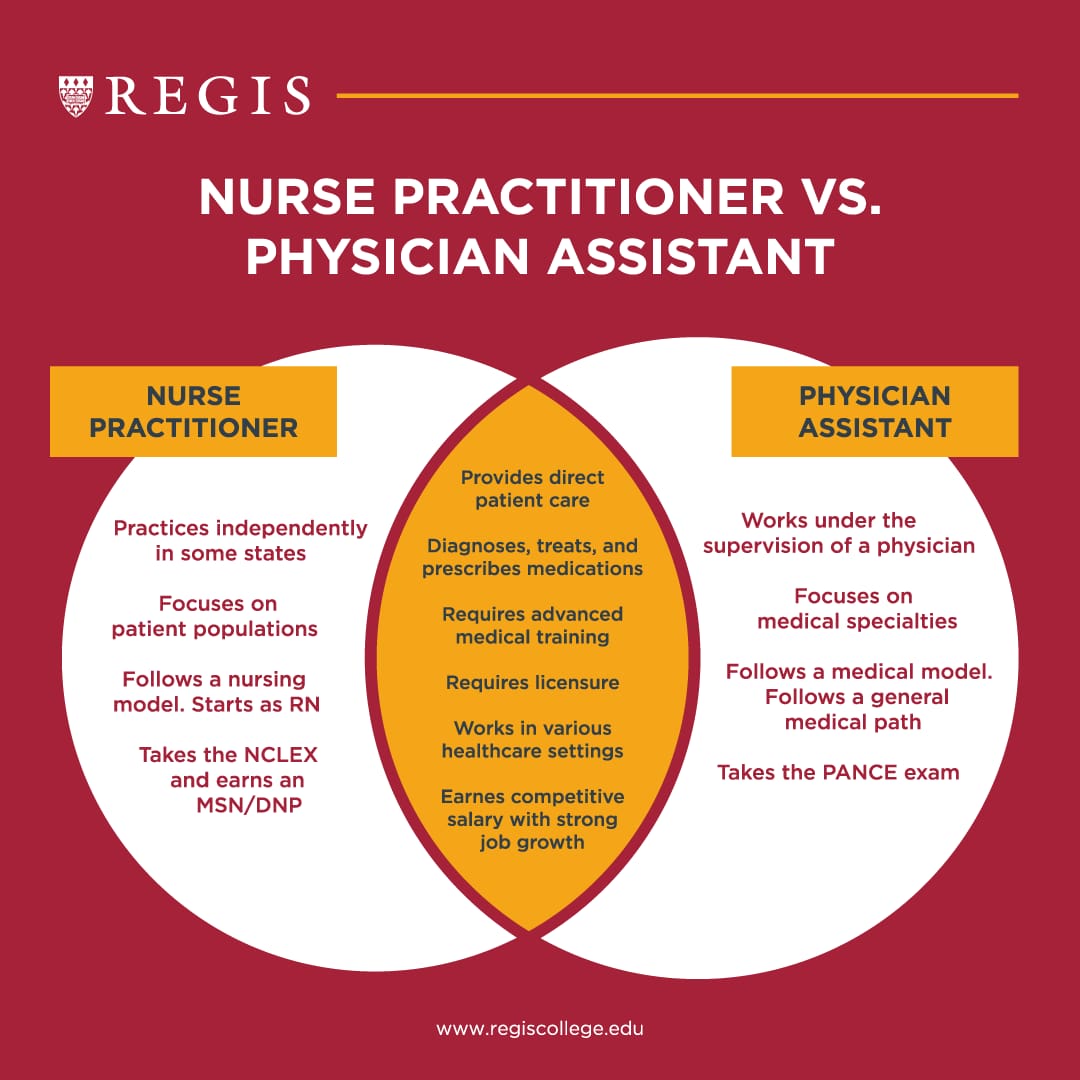Are you exploring a career in medicine? Understanding the roles of physician assistants (PAs) and nurse practitioners (NPs) is crucial in deciding which path aligns with your passions. Both careers offer exciting opportunities to make a meaningful impact in healthcare.
To understand the difference between nurse practitioner and physician assistant, we will explore the daily responsibilities and expertise required of both professions and the key differences between them so you can decide what path is right for you.
Key Takeaways
- A career as a nurse practitioner offers a rewarding healthcare path with significant impacts on patient care. Nurse practitioners provide comprehensive care, manage treatments, and prescribe medications independently.
- A career as a physician assistant also offers a fulfilling healthcare role, with responsibilities that include performing a variety of medical duties under a physician's supervision, such as diagnosing illnesses, prescribing medications, and assisting in surgeries.
- Becoming a nurse practitioner requires six to eight years of education, while becoming a physician assistant takes two to three years.
- Nurse practitioners enjoy an average annual salary of approximately $129,480, while physician assistants can expect a robust annual salary of about $130,020.
- Choosing between these two paths involves reflecting on your career aspirations, considering factors such as autonomy in practice, length of educational commitment, and long-term salary potential.
What Do Nurse Practitioners Do?
Nurse practitioners play an important role in healthcare, no matter the type of facility they work in or the patient population they serve. NPs serve a primary role of monitoring patient health, providing direct care, and serving as a primary care provider.

An NP’s profession is primarily focused on monitoring patient health and providing direct care, which typically encompasses the following day-to-day duties:
- Recording and tracking patient medical histories, such as present symptoms and medication history, to provide accurate medical records and proper diagnoses
- Collecting information, data, and biological samples from patients
- Observing patients and completing detailed, routine examinations
- Ordering lab tests and diagnostic procedures
- Analyzing test results and creating patient treatment plans
- Prescribing medication and care, then monitoring the results
- Performing medical procedures based on their specializations
- Managing other members of the nursing team, including RNs, LPNs, CNAs, and other staff members
- And more
Nurse practitioners’ workloads vary depending on the specialty they work in (e.g., pediatrics, emergency services, psychiatric-mental health, and women’s health), but providing excellent patient care and medical expertise is always top priority.
What Do Physician Assistants Do?
Like nurse practitioners, physician assistants are vital to the healthcare community. They diagnose illnesses, create and oversee treatment, prescribe medications, and serve as healthcare providers.

By law, physician assistants work under direct supervision of a physician or surgeon, and, on a daily basis, PAs are typically:
- Recording patient medical histories
- Performing physical exams
- Educating patients on preventative healthcare and disease prevention
- Ordering and analyzing diagnostic and lab tests
- Diagnosing acute and chronic conditions
- Documenting relevant patient information and analyzing treatment plan results
- Prescribing medications
- Performing procedures and assisting in surgeries
- Making rounds in hospitals
- Performing clinical research and collaborating with the medical team
PAs work in hospitals, medical offices, nursing homes, clinics, education institutions, community health centers, and the government. As a PA, you can practice in a variety of specialties, such as family practice, dermatology, critical care, anesthesia, radiology, surgery (e.g., trauma, transplant, and vascular), and many more.
Is a Physician Assistant a Higher Level Position Compared to a Nurse Practitioner?
Physician assistants and nurse practitioners play distinct but equally vital roles in healthcare—with neither being inherently “higher” than the other. PAs work under a physician’s supervision, focusing on diagnosing and treating illnesses, while NPs often enjoy greater independence. NPs take a holistic, patient-centered approach rooted in nursing care.
Both careers require advanced education and training, offer competitive salaries, and make significant contributions to patient health. Each path is tailored to different career goals and healthcare needs. Below, we’ll delve deeper into the responsibilities, education requirements, and job outlooks of these rewarding professions to help you determine which path aligns with your aspirations.
Key Differences Between PAs and NPs

1. Roles and Responsibilities
Although a physician assistant’s work responsibilities may overlap with those of nurse practitioners, there are differences between the two jobs.
Nurse practitioners generally specialize in serving a particular patient “population” that focuses on patients who may be of a certain age or have a particular condition, while PAs tend to focus on a specific area of medicine, such as emergency, internal, or surgery specialties. This can dramatically influence the daily responsibilities of both positions.
And, although both careers allow you to work autonomously, PAs are required to have an agreement to work with/under a physician, whereas in some states, including Massachusetts, NPs have full practice authority, allowing them more freedom and flexibility in their careers.
2. Training and Education
Nurse practitioners and physician assistants both undergo extensive clinical training and education, both in medicine and in important soft skills. Primarily, NPs adhere to a patient-focused nursing model, whereas PAs follow a disease-centered (medical) model of practice.
“PAs use the medical model and they tend to have a lot more of a science background,” says Carol Martin, Assistant Dean of the Nurse Practitioner Program at Regis College. “NPs use a nursing traditional model where we see the patient holistically and use a wellness approach to care for the whole person.”
To become an NP, you must first be a registered nurse by completing your Bachelor of Science in Nursing (BSN), passing the National Council Licensure Examination, and obtaining a license in the state you wish to work. Then, you will need to earn your graduate degree, such as a Master of Science in Nursing (MSN) or Doctor of Nursing Practice (DNP).
To become a physician assistant, you must first complete a related bachelor’s degree before enrolling in a two- or three-year master’s-level PA program. Then, to obtain licensure, PAs must pass the Physician Assistant National Certifying Examination (PANCE).
3. Salary and Job Outlook
Both physician assistants and nurse practitioners earn competitive salaries and benefits. According to the U.S. Bureau of Labor Statistics (BLS), PAs earn an annual median salary of $130,020 ($62.51 per hour), and NPs earn a median salary of $129,480 a year ($62.25 per hour).
Both careers are predicted to grow quickly and steadily: 28 percent between 2023–2033 for PAs, and 40 percent for NPs, which means there are (and will continue to be) many opportunities and career paths in both medical fields.
Choosing the Best Healthcare Career Path
Becoming either a nurse practitioner or physician assistant can be a rewarding decision regardless of the route you take, as both will give you the opportunity to make a difference in the lives of patients. Indeed, you will often be directly responsible for saving people’s lives.
Are you considering a career as a nurse practitioner? Learn more about the degree programs offered by Regis College, including the Master of Science in Nursing (MSN) and Doctor of Nursing Practice (DNP) to find the right path for you.




